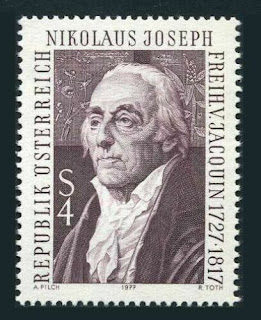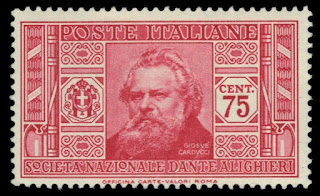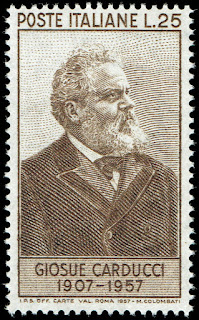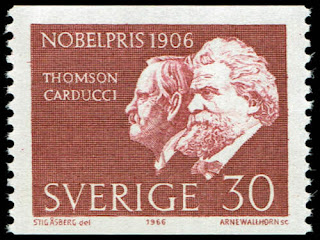Here are some events that happened on February 16th. It could be an event or a person that died or was born on that day
1579 Died: Gonzalo Jiménez de Quesada, Spanish explorer (b. 1509)
Gonzalo Jiménez de Quesada y Rivera, also spelled as De Quezada and Ximénez, (1496 – other sources state 1506 or 1509, 16 February 1579) was a Spanish explorer and conquistador in northern South America, territories currently known as Colombia. He explored the northern part of South America. As a well-educated lawyer he was one of the intellectuals of the Spanish conquest. He was an effective organizer and leader, designed the first legislation for the government of the area, and was its historian. After 1569 he undertook explorations toward the east, searching for the elusive El Dorado, but returned to New Granada in 1573. He has been suggested as a possible model for Cervantes' Don Quixote
Colombian stamp depicting Gonzalo Jiménez de Quesada
1727 Born: Nikolaus Joseph von Jacquin, Austrian botanist, chemist, and mycologist (d. 1817)
Nikolaus Joseph Freiherr von Jacquin (16 February 1727 – 26 October 1817) was a scientist who studied medicine, chemistry and botany.
Born in Leiden in the Netherlands, he studied medicine at Leiden University, then moved first to Paris and afterward to Vienna. In 1752, he studied under Gerard van Swieten in Vienna.
Between 1755 and 1759, Jacquin was sent to the West Indies and Central America by Francis I to collect plants for the Schönbrunn Palace, and amassed a large collection of animal, plant and mineral samples.
In 1763, Jacquin became professor of chemistry and mineralogy at the Bergakademie Schemnitz (now Banská Štiavnica in Slovakia). In 1768, he was appointed Professor of Botany and Chemistry and became director of the botanical gardens of the University of Vienna. For his work, he received the title Edler in 1774. In 1783, he was elected a foreign member of the Royal Swedish Academy of Sciences. In 1806, he was created a baron. In 1809, he became a correspondent of the Royal Institute, which later became the Royal Netherlands Academy of Arts and Sciences.
His younger son, Emil Gottfried (1767–1792), and his daughter, Franziska (1769–1850), were friends of Mozart; Mozart wrote two songs for Gottfried to publish under Gottfried's name ("Als Luise …", K. 520, and "Das Traumbild", K. 530) and gave piano lessons to Franziska. Mozart dedicated a considerable number of his works to the Jacquin family, notably the Kegelstatt Trio. This was first played at the Jacquins' house in August 1786 with Franziska playing the piano.
His son Joseph Franz (1766–1839) succeeded him as professor of botany and chemistry at the University of Vienna and wrote several notable botanical books.
Von Jacquin died in Vienna.
He is commemorated by the genera Jacquinia (Theophrastaceae) and Jacquiniella (Orchidaceae). In 2011, the Austrian Mint issued silver coins to mark his science expeditions to the Caribbean.
The standard author abbreviation Jacq. is used to indicate this person as the author when citing a botanical name.
Austrian stamp depicting Nikolaus Joseph von Jacquin
1907 Died: Giosuè Carducci, Italian poet and educator, Nobel Prize laureate (b. 1835)
Giosuè Alessandro Giuseppe Carducci (27 July 1835 – 16 February 1907) was an Italian poet, writer, literary critic and teacher. He was very influential and was regarded as the official national poet of modern Italy. In 1906 he became the first Italian to receive the Nobel Prize in Literature "not only in consideration of his deep learning and critical research, but above all as a tribute to the creative energy, freshness of style, and lyrical force which characterize his poetic masterpieces".
Italian and Swedish stamps depicting Giosuè Alessandro Giuseppe Carducci





No comments:
Post a Comment